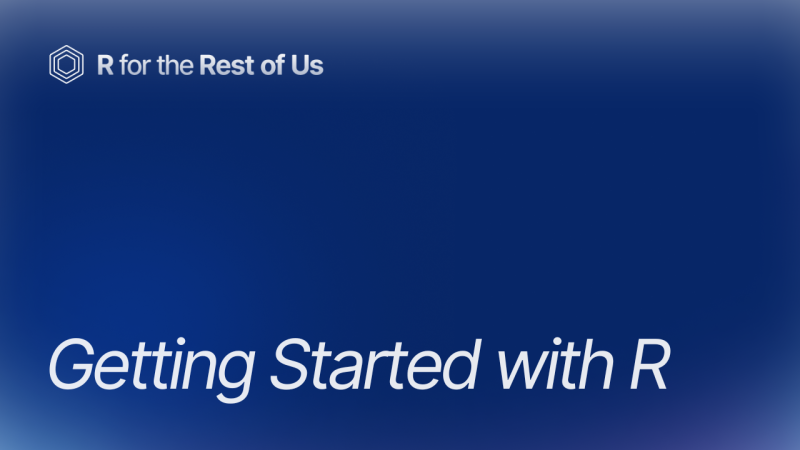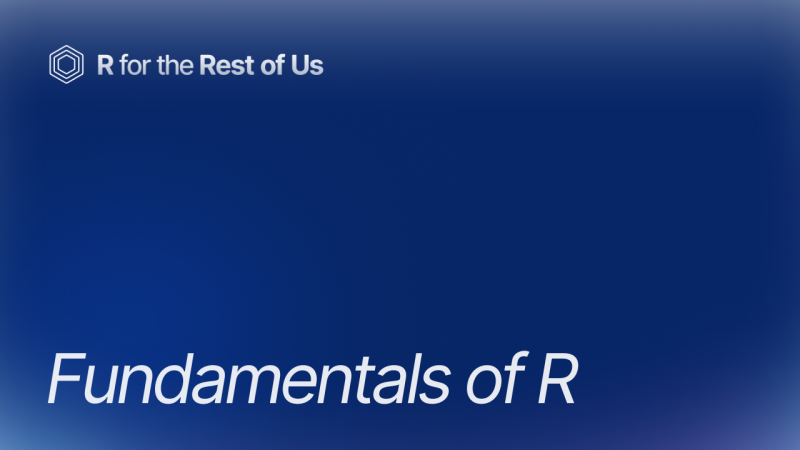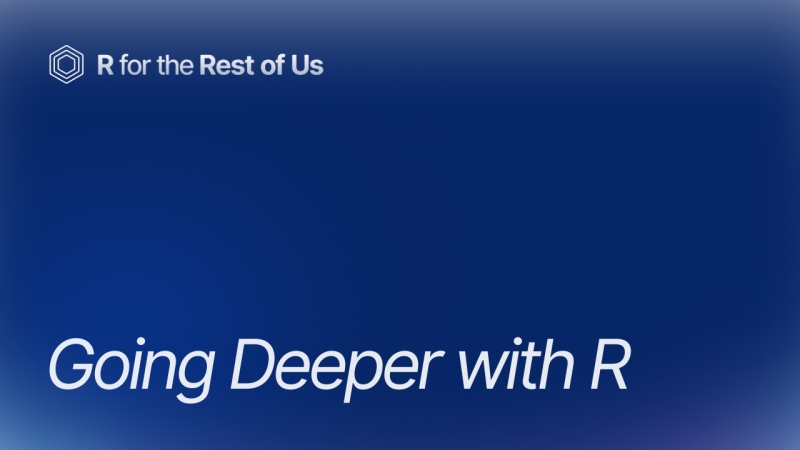Learn to use the most powerful tool for working with data.
Even if you've never coded before.

Supporting forward looking organizations




















New to R?
From "what's R?" to "I love R" in three self-paced courses.
Start here when you're just starting out.
Sign up for the newsletter
R tips and tricks straight to your inbox.
R in 3 Months
Looking for even more? R in 3 Months is a cohort-based program to help you finally learn R.
High-Quality Instruction
With R in 3 Months, you’ll get high-quality instruction that will guide you from R newbie to R expert.
Personalized Feedback
You'll work on your own code every week and get in-depth feedback.
Supportive Community
You'll be on this journey alongside a supportive community that will help you learn and keep you accountable to yourself.
Don't Take it From Us
Our learners say it best.
“I loved it. I absolutely loved it. The notepad can be very disheartening. You know immediately that there will be a lot of coding involved, but once you start the journey, you just want to go on. By the time I got to the Objects and Functions phase, I was saying goodbye to Excel. I also loved the quote about the coder. I confirmed this with my coder friends and they agreed with it 100%. I can now feel confident getting into R and coding without fear. This has been mind-opening. I would definitely recommend this course!
“I'm truly excited about taking this course-- there's so much to learn and so many different ways to approach things. The way the course is structured has really helped simplify what seemed to me as super complex and boosted my confidence in working with R.
“Very good explanations in an entertaining way, I really enjoyed the course
“Easy to understand and clear explanation of the R and RStudio
“This course really helped me demystify the process of getting started in R!! I was so so scared and waited until the last necessary moment to get started and this guided me to get to a place where I can be successful and confident. Highly recommend!
“Very easy to work with. loved all the lecture videos. each one making you to want more. The lessons are all easily grasped and understood. Looking forward to the next courses
“Fantastic and lovely
“I have been working with R for the past 3 years and consider myself to be a proficient user, however going through R in the 3 Months course made me realize the breadth of possibilities R offers and how much more there is to learn. I was able to pick up so many handy tricks that made my R workflow much more efficient and easier to reproduce.
“It was really great and helpful, thank you very much!
“Very well explained for beginners. Looking forward to deep dive into R now!
Ready to Up Your R Game?
For when you've got the foundations down and you're ready to learn more.
Let Us Handle the R
High-quality data visualization, workflow improvements, and custom packages to enable organizations to communicate more effectively and more efficiently.
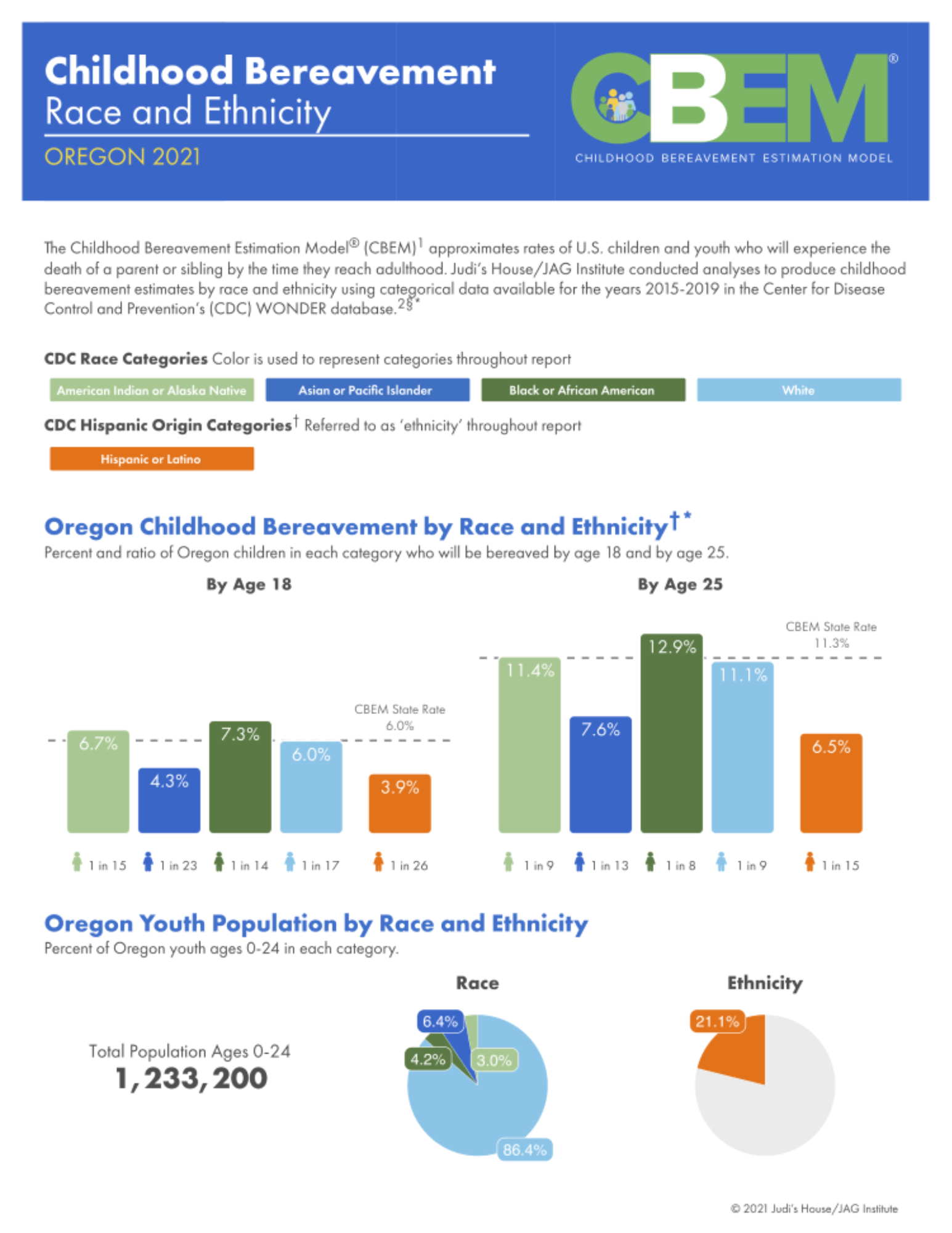
Childhood Bereavement Estimation Model Reports
Judi’s House/JAG Institute, a nonprofit in Colorado, provides support regarding childhood bereavement. In 2018, they created the Childhood Bereavement Estimation Model® (CBEM) to estimate rates of children losing a parent or sibling before adulthood. Annual CBEM reports were produced, but racial and ethnic data breakdowns were lacking until 2021. Partnering with R for the Rest of Us, they generated high-quality, easy-to-understand reports on bereavement disparities by race and ethnicity. These national and state-level reports, created using parameterized reporting and RMarkdown, help advance their vision that no child should be alone in grief.
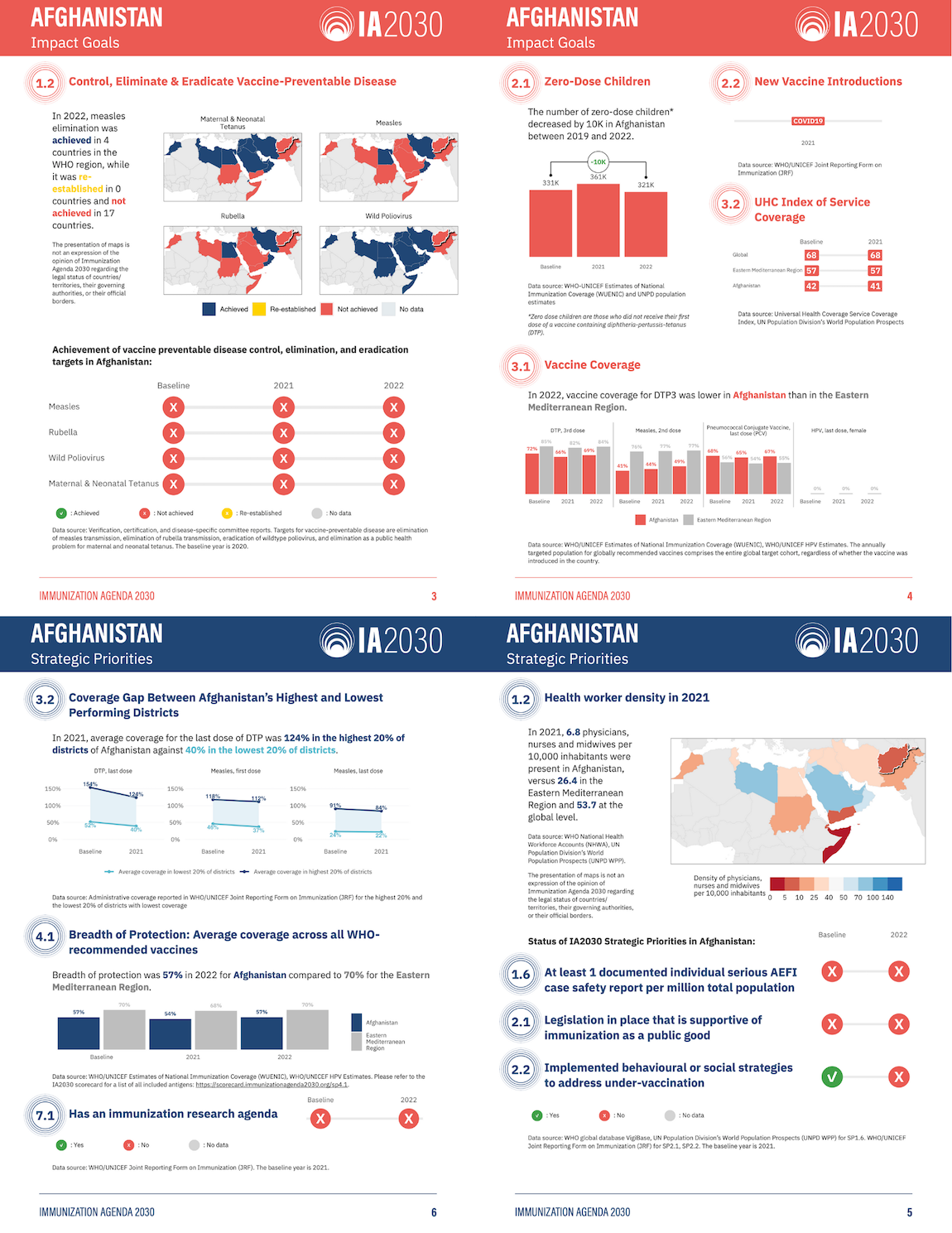
Immunization Agenda 2030 Reports
The World Health Organization's Immunization Agenda 2030 (IA2030) aims to improve global vaccine access. To better report progress, the International Vaccine Access Center at Johns Hopkins University partnered with R for the Rest of Us in 2023. They produced 72 user-friendly country-level reports in English and French, using parameterized reporting. These reports highlight individual country progress, use less technical language than previous online scorecards, and are in a printable PDF format for review.
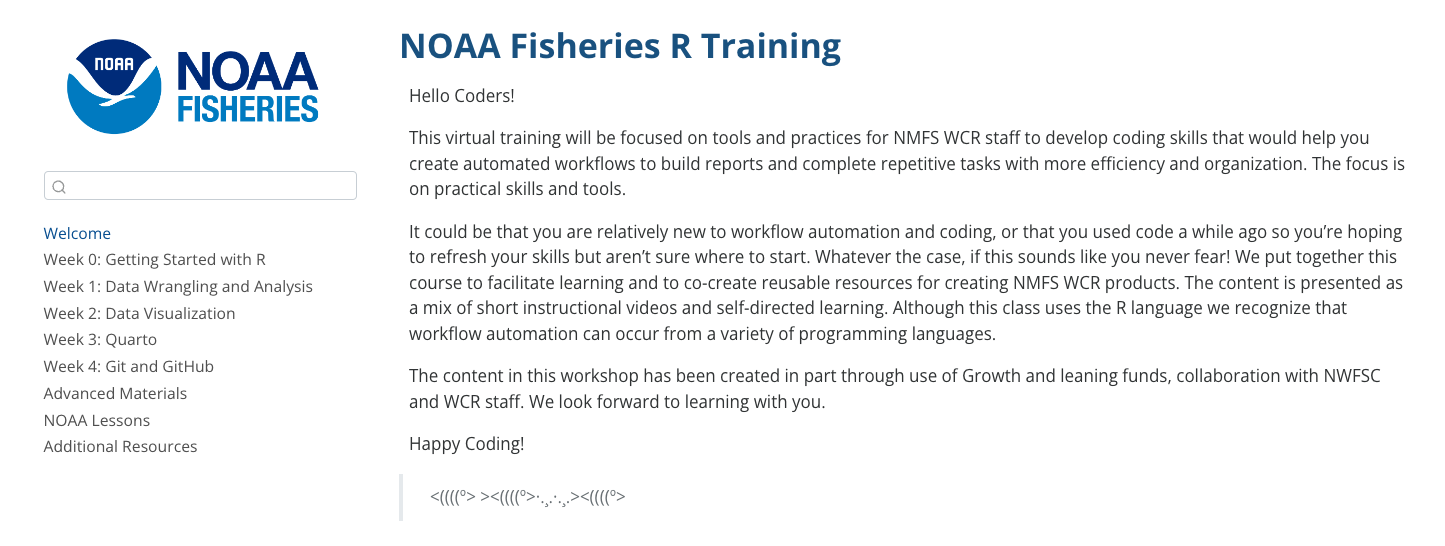
Improving R Training for NOAA Fisheries West Coast Region
Blog
Learn to use the most powerful tool for working with data.
Even if you've never coded before.

How to make heatmaps in ggplot
May 1, 2025
Heatmaps are a common way of representing data. In this blog post, I'll show you how to make your own heatmaps using ggplot. In the process, you'll learn a bit about working with the {sf} package, specifically the st_make_grid() function to make a grid, the st_intersection() function to clip the boundaries of your geography to the grid you create, and st_join() to do spatial joins. This blog post is adapted from a lesson in the Mapping with R course . If you want to learn to make heatmaps...

Use shadows in ggplot to highlight findings
April 24, 2025
In our consulting work, we make a lot of the data visualization for parameterized reporting . It’s something I spoke about in my 2024 Cascadia R Conf talk, How to Make a Thousand Plots Look Good: Data Viz Tips for Parameterized Reporting . One example I gave in this talk came from our work with the Johns Hopkins International Vaccine Access Center and the World Health Organization . In this project, we made reports for the Immunization Agenda 2030 project, which tracks the progress countries...

Create your own custom {ggplot2} theme
April 3, 2025
Creating custom themes in {ggplot2} lets you elevate your data visualizations from standard to standout. Whether you’re aiming for a polished, brand-consistent look for your organization or a unique aesthetic that reflects your personal style, a custom theme function makes it easy to apply your design to all figures with a single line of code. In this tutorial, we’ll cover: the essentials of the powerful ggplot2::theme() function, including how to adjust fonts, colors, sizing, and spacing;...
